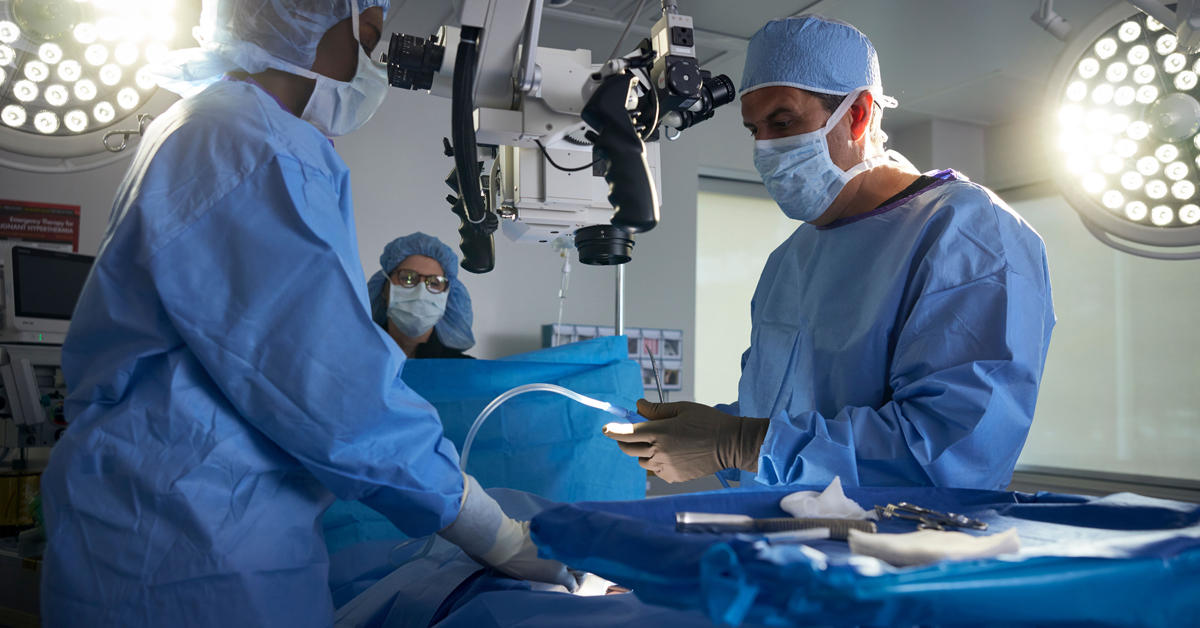Minimally Invasive Spine Surgery (MISS) is a highly advanced surgical technique specifically designed to help stabilize the bones and joints of the spine and relieve pressure on the spinal nerves.
Compared to traditional open surgery, MISS is much less invasive and significantly less traumatic to the affected area.
Due to the smaller incision and numerous benefits, MISS has become an increasingly popular choice for patients looking for a more effective and less invasive approach to spinal problems. The procedure is usually faster, safer, and requires less recovery time due to less damage to muscles and soft tissues.
MISS benefits also include:
- Better Cosmetic Results
- less blood loss
- reduce the risk of infection
- Pain relief after surgery
- recover faster
- Reduce reliance on pain medication after surgery
How does MISS work?
During MISS, your surgeon will make a small opening in your back and carefully insert a tubular retractor device. The tool effectively and gently dislodges surrounding muscle and tissue, allowing your surgeon to precisely access the affected area.
Advanced surgical microscopes are used in conjunction with real-time imaging technologies such as X-ray and video microscopy to provide your surgeon with a clear and detailed view of the target area.
What does MISS treat?
MISS is designed to treat many spinal conditions, so your doctor may recommend this technique as an alternative to open spine surgery. Some common spinal conditions that MISS is commonly used to treat include:
- degenerative disc disease
- herniated disc
- spinal stenosis
- scoliosis or other spinal deformities
- Spinal instability, including spondylolisthesis
- fracture
- Infect
- the tumor
Who is the best candidate for MISS?
For patients who have exhausted nonsurgical treatments without success, your doctor may recommend exploring minimally invasive spine surgery as a viable option. If traditional back surgery is not suitable, MISS can provide a safer and more effective alternative.
However, it is important to note that MISS will only be undertaken if it is considered appropriate and beneficial in your particular situation. If MISS does not work as well as conventional surgery, your surgeon will discuss the potential benefits and risks.
Risks of Minimally Invasive Spine Surgery
While MISS usually has fewer complications than open surgery, it is not without risks. Potential complications include:
- Infect
- bleeding
- nerve damage
- Complications Related to Anesthesia
There is also a risk that surgery may not relieve initial symptoms and may even exacerbate symptoms.
As with any surgical procedure, it is important to discuss the risks with the surgeon, weigh the risks against the potential benefits, and understand the precautions that can be taken to mitigate the risks.
Recovering from Minimally Invasive Spine Surgery
The recovery process with MISS is usually quicker than with traditional open spine surgery. This is because the procedure is less invasive, requires smaller incisions and causes less tissue damage. However, exact recovery time may vary based on a number of factors, including:
- Specific type of surgery
- your overall health
- How well you followed post-op care instructions
For best results, patients must strictly follow the guidelines provided by the medical team.
Discuss MISS with your doctor
Back pain can be complex, and finding the right solution can be challenging. We are committed to helping you understand your treatment options. Give our office a call today!


